I'm a product of the 90's. I was born in 1981, but let's be honest kids don't really start thinking about a whole lot until they hit school. When 1990 rolled around, I was just about to turn 10 and the world was open to me. I was ready shape my mind through the influence of media.
The coolest movies that boys that age talked about at recess were Star Wars, Blade Runner, and Space Odyssey 2001. At that point, those movies were already more than 10 years old, but we didn't have Netflix then. You got bootleg VHS copies that looked terrible, and the sound was all garbled. But what you lacked in HD and surround sound, you more than made up in imagination. Boy, that we had.
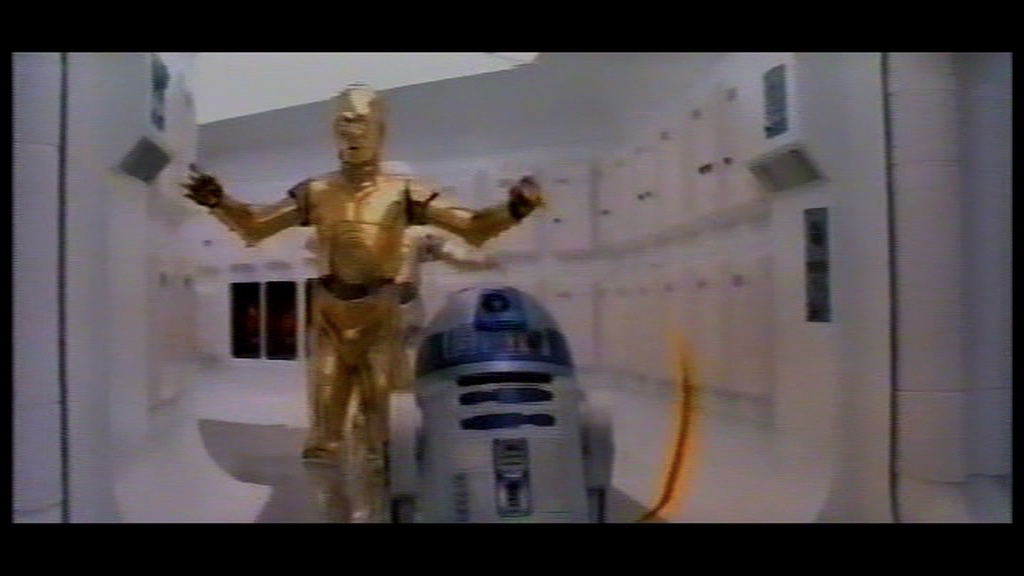
Personal computers had just become widely available, and luckily my dad was a nerd too, so we got a nice Intel 386 system running DOS. Then, they made games. Lots of games. The thing with these video games was that they were also inspired by those amazing early sci-fi movies, but instead of watching for 120 minutes, you could play for days. Weeks. Sometimes, even years.
You would play alone at night. Turn the lights off, and the sound up. Get out your joystick. It was like VR. During daytime, you would invite friends over. Mostly they would watch you play. Sometimes, you might let them have a turn. Sometimes. But it didn't matter who played, really. Your imagination was captured, and off to the races.
I played a lot of games through all of the 90's, but a few I will remember for the rest of my life. The music. The characters. The thrill of starting a new adventure.
The Secret of Monkey Island (1990)
There is probably no other game that captures my childhood quite as much as Monkey Island. Oddly, I was never any sort of real pirate fan, I was always more of a sci-fi guy. But there was so much of the Luke Skywalker narrative and emotion in this game, that probably made it cut so deep into my mental fabric.
Guybrush Threepwood: My handkerchief will wipe up your blood!
Sword Master: So you got that job as janitor, after all.
I can't quite describe how it feels to rewatch this seemingly crude intro sequence, and listen to this funny beeping music. This was virtual reality for us back in the day. I was there. On that island. I can still go back to that today.
This was one of the games that kicked off the golden age of the adventure game from companies like LucasArts and Sierra Online. They had long narrative storylines, rich characters, and set it all sorts of worlds and lives that little boys could only dream of. Monkey Island was a real adventure story, with a naive and optimistic lead character looking to make his name and fortune. There was a palpable sense of romance and nostalgia about the future, that it would all work out amazingly. I drank it up by the gallon.
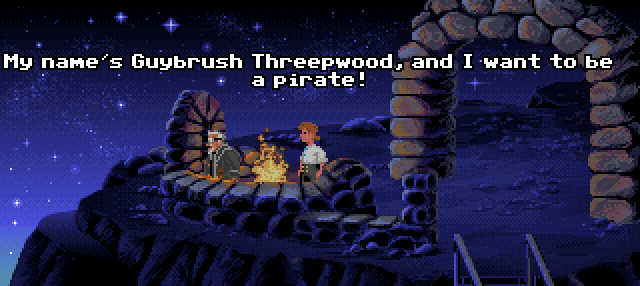
Like most young boys I wasn't much of a reader until much later in life, but even now I can tell you there is no comparison in terms of attachment to book characters and video game characters. Video games allowed you to make choices, which made the narrative your story.
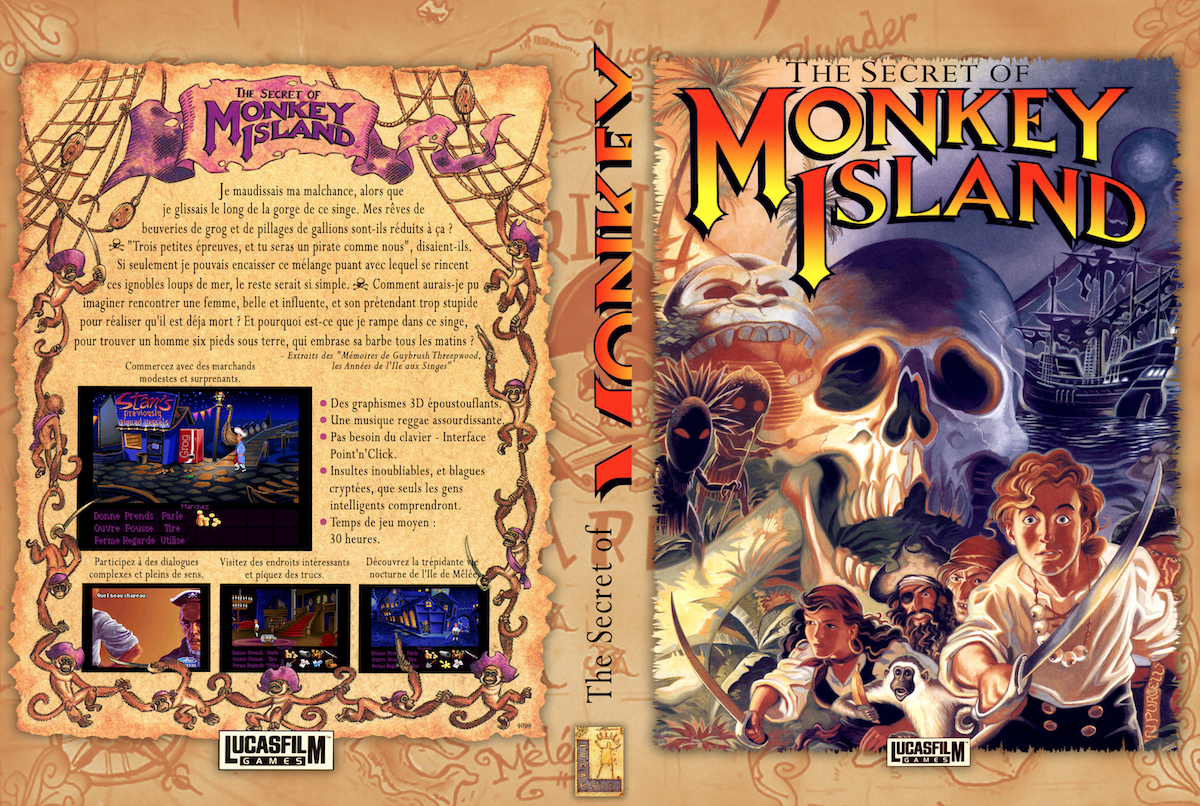
When I look back at Monkey Island, to me it feels more like a complete work of art than just a game. It had a very deliberate world design including the narrative, humor, music, and artwork that all tied in together. There was an honest innocence about it that didn't feel commercial at all. It was the vision of a handful of guys that probably had the most amazing time crafting this experience.
Try the game
Original: order (remastered PC)
Modern equivalent: Thimbleweed Park (all platforms)
Sid Meier's Civilization (1992)
If Monkey Island was the game that lit up my imagination, then Civilization was the game that lit up my brain. Let's remember, there was no Wikipedia back then. There was no such thing as fun learning. There were just many forms of boring learning.
Take a few minutes to watch this intro to the game, from 1:15 onwards:
I can't tell you how influential this was for 11 year-old Aki. This was a scientific video game, showing you how our planet formed from stardust. How life emerged, and evolved into intelligence over the millennia. Then, at the end of the intro the game begins, and you take control.
In the beginning, the Earth was without form, and void.
You had to create something out of nothing. 0 to 1. You started with one little tribe in a single town. The wide, unknown world before you, and unlimited opportunities and decisions to make. The world map was actually black, until you explored it. What kind of world were you going to build? What kind of leader where you going to be? Would you focus on war and invasion, or technology and prosperity?
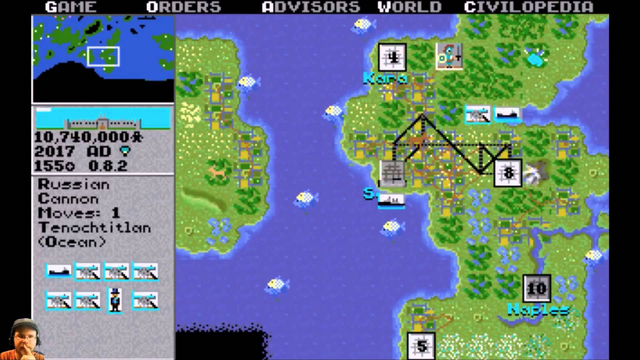
If I had to pick one book, course, or some individual teaching experience that taught me the most in terms of general knowledge, it would undoubtedly be Civilization 1. No question. You could play the game on the map of Earth, playing as a historical civilization, and literally guiding them year-by-year through history. You could take the Romans or Aztecs from sticks and stones to spaceships. And I did. Many times over. I played as the Mongol invaders. The Roman builder.
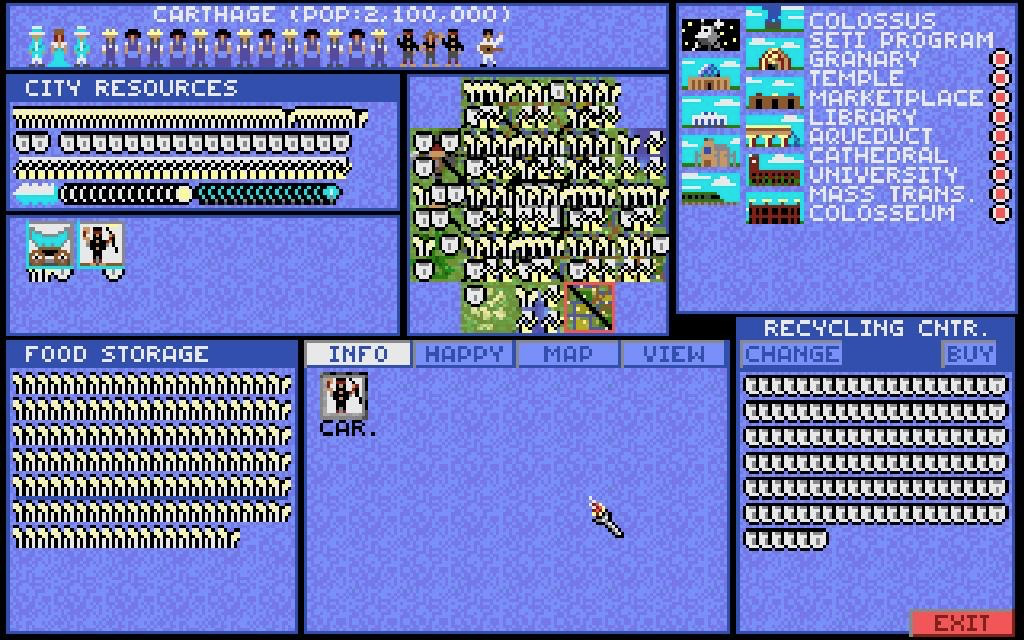
You had to take care of your citizens too. They had needs. If you wanted to grow the population, you had to support it by farming land and natural resources like coal. You could trade between cities and other nations for resources lacking in your own areas. If you wanted more income in taxes, you had to keep citizens happy. You needed temples. If you wanted scientists, you needed libraries. These were all choices that took time and resource.

One of the more innovative aspects of the game was how much emphasis it placed on development of technologies, and their impact on the world. If your neighboring tribe discovered bronze before you did, well good luck invading their towns hitting bronze weapons with your wood sticks! Until you invented sail ships, your rudimentary triremes could only explore the shores. No shortcuts from Europe to America, then! You had to build granaries, aqueducts, and eventually sewers to support growing populations.
These technologies were linked through dependencies. If you wanted to invent the republic, a better form of government, then you had to first invent things like a code of laws and literacy. That in turn required writing and the alphabet. These technologies advanced all the way up to electronics, nuclear fission, and space flight. You could only research one technology at a time, so you had to plan for the long-term!
As the centuries passed, certain key inventions became obsolete, which is also a fancy word I learned from the game. If you didn't keep up with technology, you got left behind. That's how the real world works. That's how business works! I was learning this at age 11.
Try the game
Original: download (PC)
Modern equivalent: Civilization VI (PC)
Fallout (1997)
Ever since the original Star Wars trilogy, my mind was permanently stuck in future first mode. When was the cool future coming around? What would come after that? Would I still be alive to see the really awesome stuff like spaceships? Let's remember the 80's and 90's were the era of the Space Shuttle and International Space Station. It seemed like the future was going to be exciting!
Again, so good. The concept invokes that charming 1950's version of an atomic future. Futuristic with a strong undertone of nostalgia. Like Mad Max meets Blade Runner and The Jetsons.
War. War never changes.
The game begins when you, one of the lucky survivors of this nuclear holocaust, is chosen to step out of the vault where everyone you've ever known has been locked inside for 100 years. What's out there? God knows. You're about to find out.
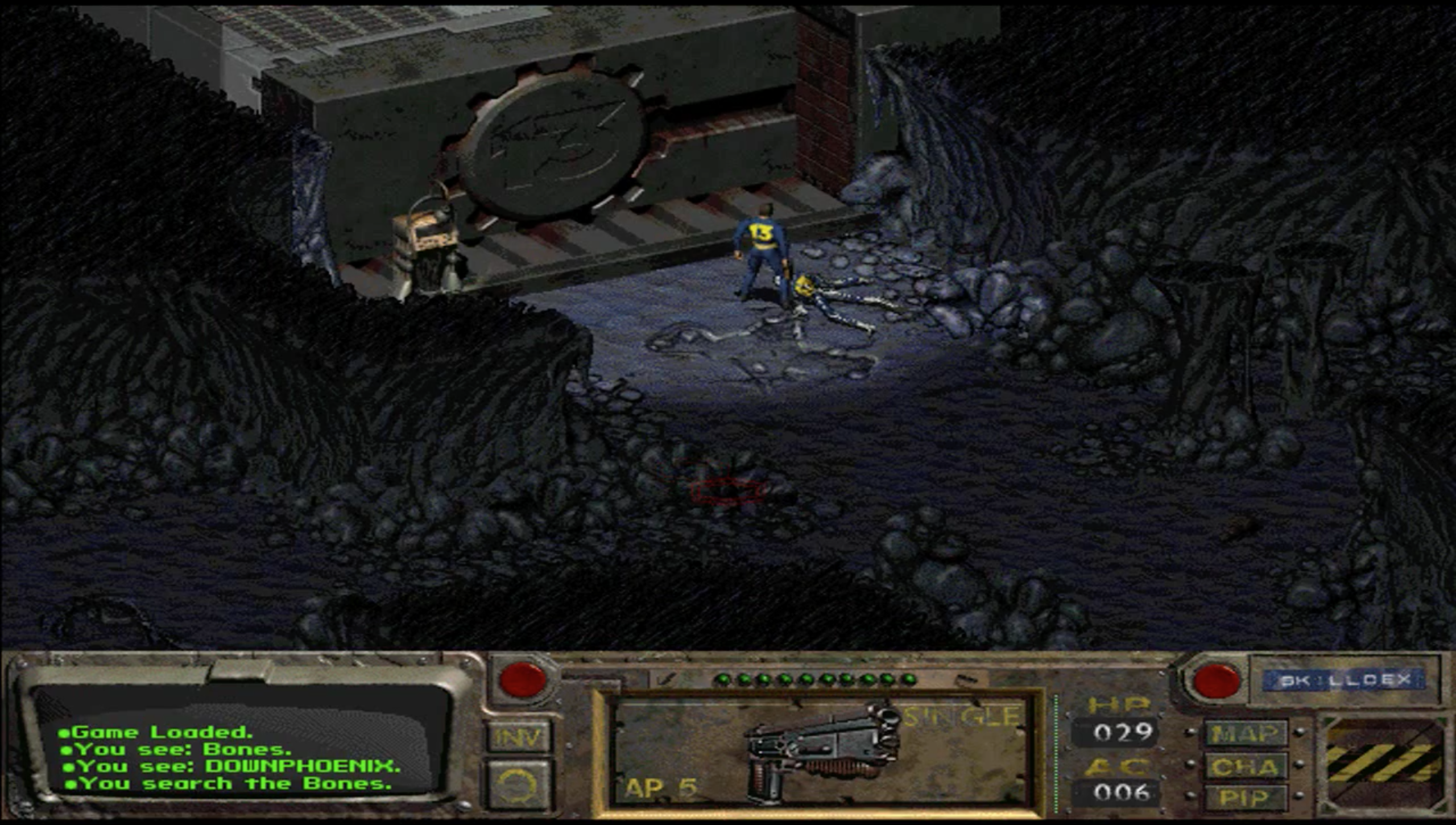
This is like those early adventure games, but on steroids. They called it an open-world Role Playing Game. You can create your own character. Not only that, but you can choose your attributes. Your skills. And best of all, they develop constantly during the game! This was really new stuff, but it built this incredible attachment to your game experience.
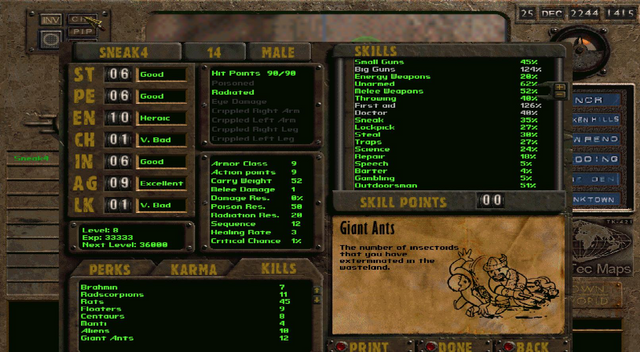
Something I've also taken away from the first two Fallout games was humor. Especially the Pip Boy system was full of dark humor, irony, and sarcasm. It didn't detract from the dark, almost grave setting of the game, but perfectly complemented it. It's something I've tried to carry with me, especially in my writing.
Try the game
Original: order (PC)
Modern equivalent: Fallout 4 (Xbox One)
Counter-Strike (2000)
A few years later the real world was changing rapidly. The internet boom was upon us. We had gone from dial up modems to high-speed fixed lines. Communities were popping up online beyond simple BBS forums. Everything was real-time now. Games picked up on this too.
This was my first year of university, and as you're about to find out, probably the least productive year of my life. The internet got me. It consumed me. It became me, for a while.
KickaSS: We pwned those newbs, all your headshots are belong to us!
I would start each day by booting up the PC, which at this point was my custom build with an overclocked CPU. This is a hugely underrated yet highly educational part of the gaming scene. You had to do some actual computer science if you wanted to play seriously. You had to learn about motherboards, I/O bus standards, RAID configurations, BIOS overrides, boot disks, and CPU voltages.
While the thing booted for some minutes, I may or may have gone to the toilet or had breakfast. Those were irrelevant human needs. I was just waiting to get on IRC (Internet Relay Chat) to greet my friends and really start the day. Share a LOL's. We didn't have Youtube, memes, or emojis yet :). They were real-life friends too, and we met in person most days at school, but we lived our lives synchronously online. Most days went by start to finish online, chatting away our lives on IRC between bouts of CS.
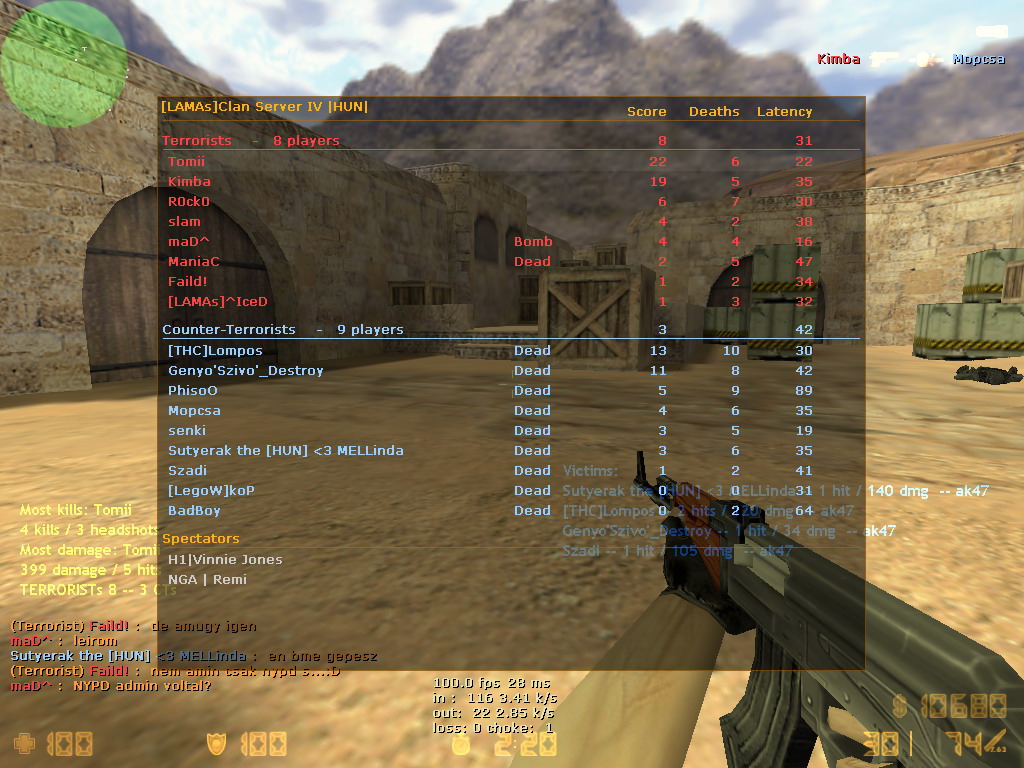
The quintessential online game of those early days was Counter-Strike. All the kids now are on Fortnite. Well, this is the daddy of that. Counter Strike created the genre of online first-person shooters, and largely started what we would now call e-sports.
Once you got online, you could join any of dozens of ongoing games, or set up your own and invite your friends. You could enjoy the pure and human emotion of trolling newbies with your highly developed skills. You could also gang up with your friends to play other teams, called clans, competitively.
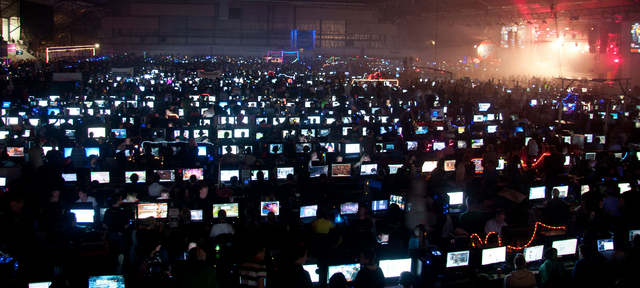
For more serious tournaments, we would throw our computers in a car and go to a LAN party. If it isn't apparent already, it was too much of a good thing. It wasn't even just a hobby. More like a problem. I spent no time or effort on my studies. How did I get out? Luckily for me, I guess, Finland has mandatory military service. Nothing will quite cure you from digital addiction than spending a year in the woods with nothing but a pair of boots and a rifle. Highly recommended.
The one good thing that did come out of this obsession was my career though. I started in web design by creating the coolest clan page I could imagine. Not just HTML. I created interactive, animated pages in Flash. Web design eventually lead to software testing, to web development, to project management, to business development, to management, and eventually to starting my own companies.
Try the game
Original: order (PC)
Modern equivalent: Fortnite (Xbox One)
Hearts of Iron (2002)
To set the mood for the finale, play Ride of The Valkyries by Richard Wagner, the title music for the actual game, and embrace the magnitude of a world history altering series of events. (
After my year in the army, I was incredibly focused on my studies. Compared to sitting in a pot hole in the middle of the freezing winter, sitting on a wooden bench for computer science lectures seemed a rare luxury. Spending a lot of time around campfires with other boys my age from all walk of life also made me appreciate the opportunity I had in front of me. Most had no idea what to do with their lives, and I had a spot in the top university in the country.
Never give in, never give in, never, never, never, never—in nothing, great or small, large or petty—never give in except to convictions of honor and good sense - Churchill
The only game that really grabbed my limited attention during that time was Hearts of Iron. This was rekindling the flame for a last hurrah, like the last cigarette before kicking the habit. HOI was like Civilization for war, expect on steroids. It was less game, more simulation, really. But having just spent 12 months in the army, it was playing out how that experience might've been 50 years ago during World War II for the generals making decisions defining the future of humanity.
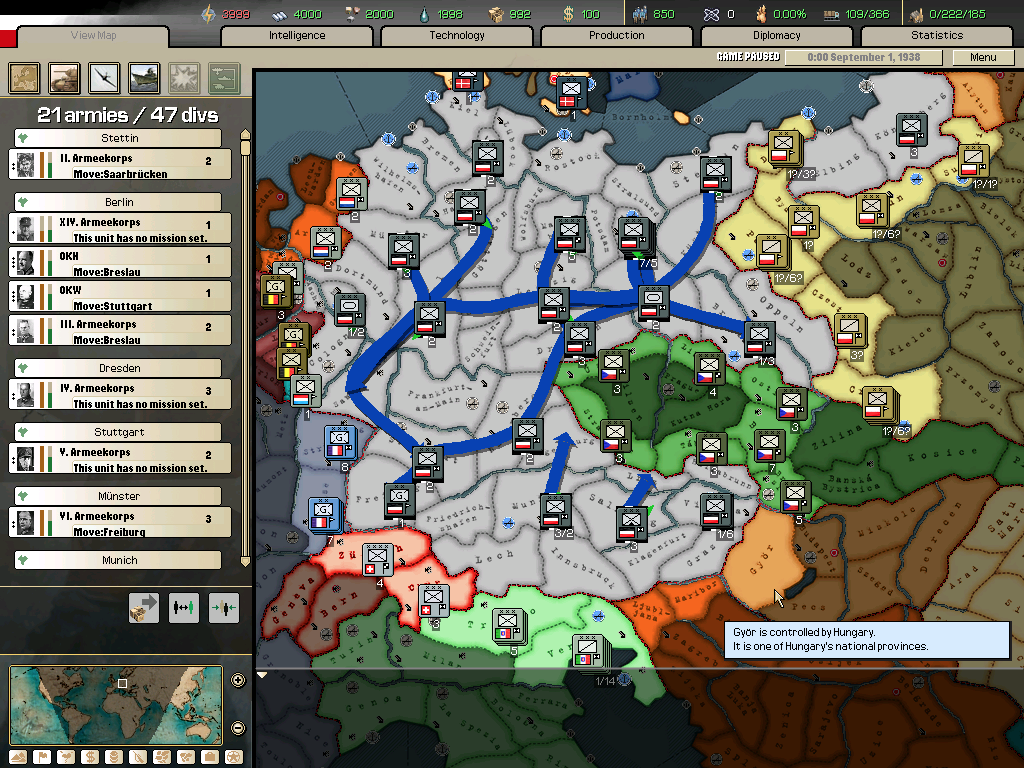
Besides igniting a fresh interest in history, particularly war history, it also created a real appreciation of classical music. I had always considered it something that our grandparents listened to while reading the bible or something, but HOI reminded me that a lot of that music was created around the great conflicts of the time. These works were not inspired by booties and cat videos, but by the emergence of new national identities, and the terrible struggles of entire generations that fought for their rights of freedom and equality. When I listen to Sibelius' Finlandia for example, it gives me goosebumps every time, because you can feel the angst and hope of an entire people, my people, being captured in those notes.
HOI even inspired me to use it as inspiration for one of our final school projects. Me and a few buddies created European Crisis, a beautiful if somewhat dumber turn-based strategy game. The other game we created was a 3D croquette game, well because, the croquette simulator scene was clearly underserved! You could even load custom maps as images and the engine would render it into a 3D map you could play on. Like the Moon. Or Mars. It was glorious.
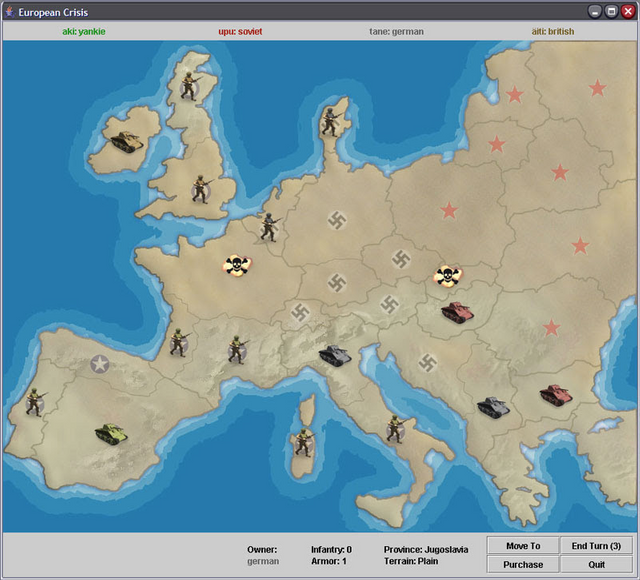
I never really saw myself as a game industry guy, especially because at that time it was all about 3D graphics and gaming consoles, neither of which were that appealing to me. Now adventure games I could've gotten into, but never say never!
The only regret I really have is not publishing any of these. Granted, we didn't have Steam or the App Store at that point, but university was deeply un-entrepreneurial back then. You wanted a corporate job, and that was that. We could've spent our summers publishing games and creating companies, instead of menial unpaid internships at crappy desk jobs. Partially for me, the fitness app I recently published scratched this same itch. Making something for me. Well, that's a whole other story.
Try the game
Original: order (PC)
Modern equivalent: HOI III (PC) and (Mac)
Honorable mentions, or games I played a lot
- Sonic The Hedgehog (1991): Super Mario on cocaine speeds
- Doom (1993): The first big first-person-shooter
- Sim City 2000 (1993)
- Command & Conquer (1995): First real-time strategy game
- Warcraft II (1996): C&C but with orcs!
- Civilization II (1996)
- Quake (1996): First online first-person-shooter
- Grand Theft Auto (1997)
- Half-Life (1998)
- Starcraft (1998): C&C but with aliens!!
- Deus Ex (2000)
- Madden NFL (2004): You kind of have to be a football fan
- Forza 2 (2006): Racing with realistic physics and 60 FPS
Wait, don't I play anymore?
Around 10 years ago I switched from PC to Mac and never looked back. That was more work related, but as a person that hates clutter in my life, I would always just have one computer for work and home. And despite the awesome and beautiful OS, there's almost no games on Mac even today. So thanks Steve Jobs for increasing my productivity in life!
I do have an Xbox One at home, which I bought for my kids, -cough-, and a bunch of cool games on it like Fallout 3, Destiny 2, Assassin's Creed, Mass Effect 4, Forza 7, and Titanfall 2. The graphics and voice acting are incredible, like the latest Hollywood blockbusters but interactive, yet... it's not the same. I try them out, but I'll never be that 10-year-old on the first day of summer vacation and a fresh new game to install.
Shoutout and thank you to Ron Gilbert and Sid Meier for my golden childhood years, and sparking my imagination into a flame that I carry with me for my entire life.
Which video games inspired you in your youth? Are there games that still capture your imagination like back in the day? Please share!